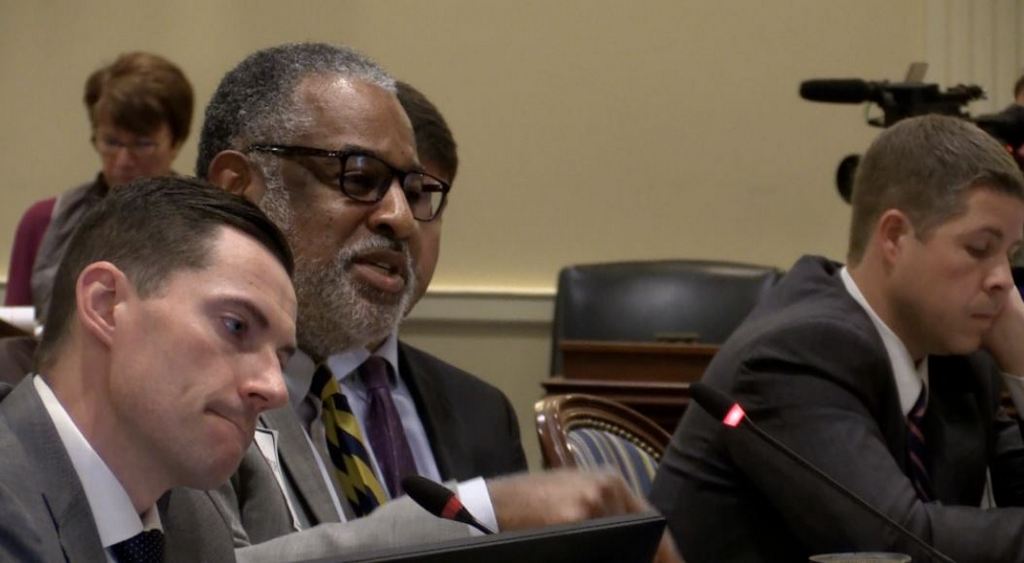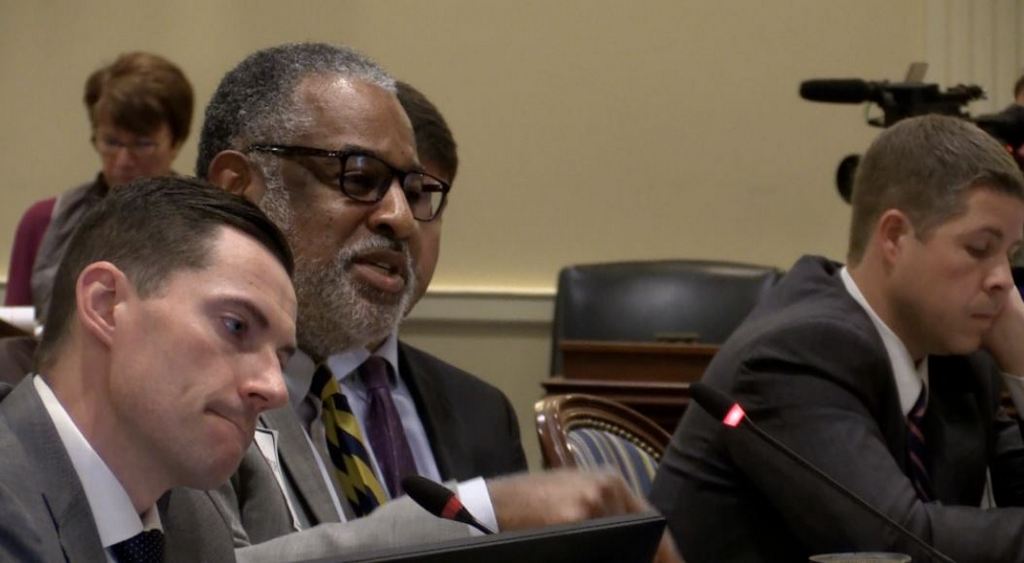[ad_1]
By Stephen Janis, Special to the AFRO
Any expectations a state panel convened in Annapolis to investigate the disgraced Gun Trace Task Force (GTTF) unit would deliver dramatic moments or new revelations about corruption in the Baltimore Police Department(BPD) were quickly dashed Nov 13.
Instead of probing questions and demands for transparency, the newly constituted body was given a perfunctory overview on the command structure of the department. It was an hours long presentation that seemed more intent on preserving decorum then getting to the bottom of why the department failed to supervise the eight officers who pled guilty, or were convicted of dealing drugs, robbing residents and stealing overtime.

The Commission to Restore Truth in Policing was authorized through legislation earlier this year in response to the burgeoning GTTF scandal. The body is chaired by former judge Alex Williams, and plans to hold public hearings throughout the year in both Annapolis and Baltimore.
But, if the commissioners intend to unearth details of how a culture of corruption allowed the GTTF to engage in an unfettered crime spree, it will have to depart from the format that allowed top police officials to testify for hours without having to divulge any details about the breakdown in the chain of command, or the past histories of the GTTF members.
“This was a systemic failure of the criminal justice system,” said Andre Davis, Baltimore City Solicitor and a former federal judge told the commission.
Part of the problem Davis testified, are laws that govern personnel records of all state employees. In addition to the extra layer of protection for law enforcement officers in Maryland afforded by the Law Enforcement Officers Bill of Rights, Davis said both laws made it illegal for him to publicly discuss the personnel records of the GTTF members.
“Law enforcement officers in Maryland have super-duper protection,” he said.
“Secrecy and a lack of transparency has got to a be number one priority for change.”
Still, during the hearing bits and pieces of information emerged; including the fact that this year roughly 2,000 internal affairs complaints have been filed by residents. Witnesses also told the commission that there has been an exodus of officers from the BPD internal affairs division since lie detector tests were made mandatory.
Staffing also remains an ongoing problem, with only 2,500 of the 2,700 budgeted positions for sworn officers filled.
But, Davis continued to hammer on the theme of transparency throughout the hearing.
As an example, he singled out the department’s internal disciplinary process known as the trial board. The hearings are public, but Davis pointed out that other aspects are kept secret.
“Is the outcome of each trial board posted?” Davis said. “Nobody ever finds out about the outcome of a trial board,” he added. “The transcript is not public; if the verdict is not guilty, you never hear about the case again.”
In the BPD narrative of the GTTF, police officials tried to paint a picture of an initially effective unit sullied by a few bad actors. However, witnesses touted past statistics when the unit operated under the auspices of The Violent Impact Crimes Division during the tenure of former Police Commissioner Frederick Bealefeld.
“The task force was to suppress gun trafficking,” Daniel Beck, legal counsel for the BPD told the commission. “In 2008 they seized 268 guns and arrested 41-gun offenders.”
Sean Malone, an attorney and lobbyist who represented several of the officers involved in the death of Freddie Gray during their trial board hearings also praised the unit’s past performance.
“It was a pretty effective task force when it was a regional task force,” said Malone, who is part of the commission.
Davis also gave passionate testimony about the city’s sole form of civilian oversight, the Civilian Review Board (CRB). The board recently sued the city over a nondisclosure form that Davis demanded board members sign. The lawsuit alleges that since then records of citizen complaints have been withheld by the department.
But Davis said the primary problem with the board is the legislation that created it.
“It’s a paper tiger.” Davis said. “The need for legislative change is profound.”
[ad_2]
Source link


